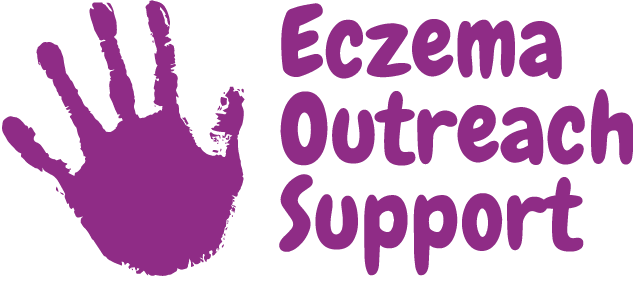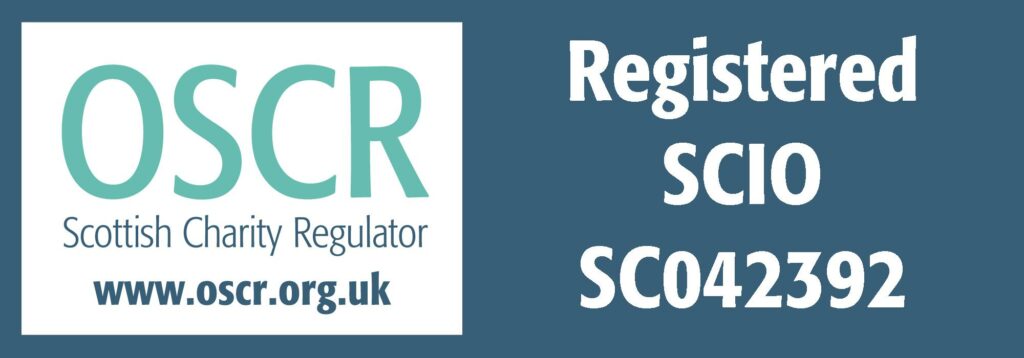Eczema Outreach Support works with researchers across the UK and beyond.
We take part in steering groups and panels, work with university researchers and with companies developing new eczema treatments.
We also work with the National Institute of Health and Care Excellence (NICE) and the Scottish Medicines Consortium (SMC) in the assessment of new treatments. We do all of this to make sure that the experiences and needs of children with eczema and their families are represented.
There are lots of opportunities for families with eczema to get involved with research too.
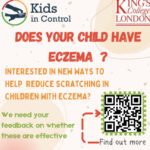
Kids in Control study
Does your child have eczema?
Help find new ways to manage scratching in children with eczema.
‘Kids in Control aims to help children take control of their eczema by increasing their understanding of the condition, awareness of scratching behaviour and supporting a change in behaviour to help reduce itchy skin.’ (Kids in Control, 2024)
Find out more here.

RAPID Eczema Trials
Join a team of members of the public working with researchers to design and run clinical trials that answer questions that people have about living with eczema.
If you have eczema or your child does, then find out more at rapideczematrials.org.
Look out for more opportunities coming soon.
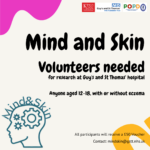
Mind and Skin
Mind & Skin is a study evaluating the impact of skin inflammation, itch and sleep disturbance on the brain, in patients with or without eczema (including healthy volunteers), aged 12-18 years old, through a range of assessments such as:
- Sleep studies in the home environment
- Lifestyle questionnaires
- Skin tape sampling and swabs (non-invasive)
- MRI scan
- Single blood test
They are looking for young people who fall into any of the following categories:
- Group 1: Atopic Dermatitis patients who are about to start systematic treatments (such as Methotrexate or Dupilumab)
- Group 2: Atopic Dermatitis patients who manage with topical treatments
- Group 3: Healthy volunteers with no history of atopic dermatitis
All participants who take part will receive a £50 voucher per visit to the hospital, to say thank you to them volunteering their own time. The research team will also cover meal and travel expenses.
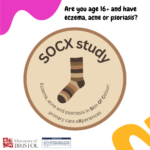
SOCX Study
Researchers at the University of Bristol want to find out about the experiences of people with eczema, acne and psoriasis in the context of their skin colour and ethnic and cultural backgrounds.
If you are aged 16 and over, and have eczema, acne and psoriasis you can get involved.
